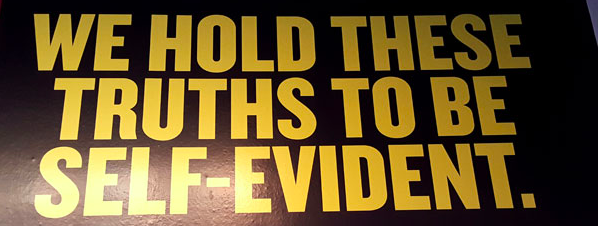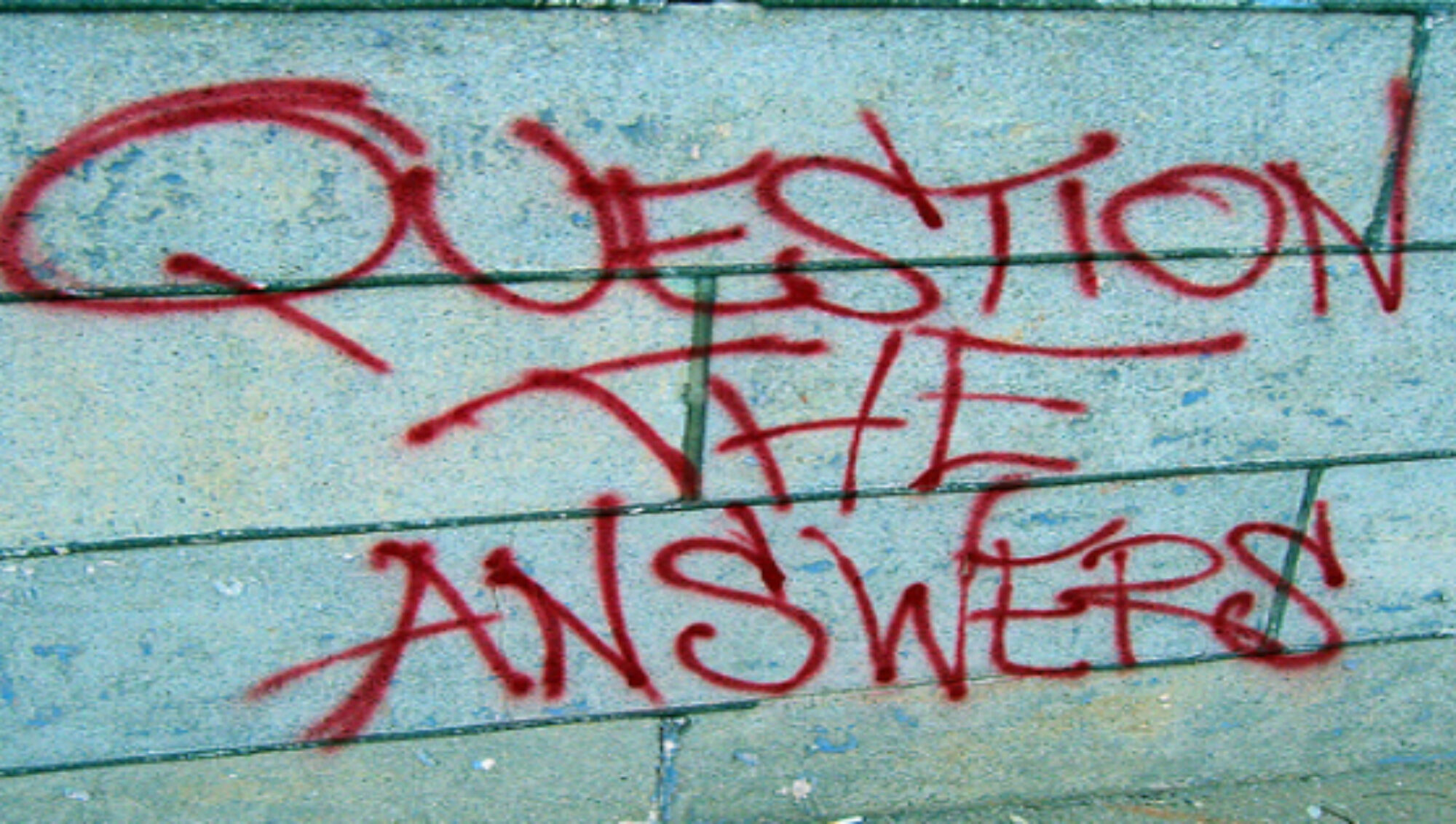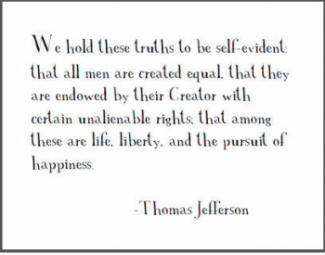
The pre-amble to the Declaration of Independence begins with the phrase “we hold these truths to be self-evident.” This early promise of an America which accurately mirrors widely agreed-upon fundamental principles looks nothing like our current politics. “Self-evident truths” have not resulted in shared agreement; instead claims of their existence have led to a cauldron of polemical contestations. Why did this happen?
Though the Declaration’s assertion of “self-evident truths” was strategically useful in fomenting and justifying the American Revolution, attempting to use these truths as a basis for governance has proven to be very unstable and highly contentious. This instability is not caused by the lack of reason in any particular subset of the population; it will not be resolved by repeatedly calling into question the rationality of those on the other side of an issue.
The existence of self-evident truths has never been self-evident. They were the effect of a long philosophical lineage, emerging in the 17th century as both political theory and revolutionary strategy. The founding fathers had access to a wide range of political philosophy texts. The Declaration of Independence reads as a concise summation of English theorist John Locke’s Second Treatise of Government, written in 1690. In Locke’s text, fundamental principles he called “natural laws” function well abstractly, but falter when people attempt to implement them.
In Lockean theory, a hypothetical pre-governmental society (a “state of nature”) starts out stable and harmonious with almost all people understanding Natural Law. But Locke wasn’t content with asserting that people know these laws; he also believed that individuals had the right to execute them – to apply them. While asserting that most people would be objective in these applications – almost all are endowed with the rationality required to perceive natural laws – Locke also acknowledged that individuals who were “party to a dispute” would be partial in their own case. This is where his – and our – problems begin.
To Locke, “party to a dispute” is the crucial factor which impinges on our ability to be objective. Though, at the beginning of his treatise, being a “party” is limited to the few individuals who are materially affected by a dispute, unresolvable disagreements become wide-spread and his state of nature descends into a state of war. Locke doesn’t explicitly tell us why this occurs.
Locke believed that by limiting the subjective aspects of applying natural laws to those who were “party to a dispute, ” impartial outcomes would emerge from those not directly affected by the contested issue. But this doesn’t happen in his text or in our politics. Why not?
Consider the following hypothetical situation: You receive a speeding ticket while driving to work. You enter your workplace enraged, recounting to everyone how you were mistreated by the police and, perhaps, you throw in a few charges of tyranny. Your co-workers calmly reply that you are too closely tied to the situation and far too emotional; that what the police did was a perfectly reasonable enforcement of necessary laws. In Locke’s formulation, you should rely on the objectivity of your co-workers over your own since they were not directly affected by the outcome. Though you are convinced of your own position, you are too personally and materially connected to be objective.
Let’s expand the hypothetical. In further conversations you discover that almost all your co-workers supported the office manager when he implemented a number of strict rules regarding proper attire, lunch breaks, and acceptable coffee mugs. In their responses to you, many indicated your complaints of maltreatment must be false, repeating the phrase “the police would never do such a thing.”
These individuals conform to Locke’s strict criteria in terms of not being a “party to the dispute, but their objectivity is uncertain. Perhaps their judgments are based on objective, analytical examinations of the specific details surrounding your ticket; or perhaps they come to the discussion pre-disposed to believe strongly in authority, stability, and rules, and only think they are being objective. Would you be able to tell the difference with any degree of certainty? Would they?
In our current politics the kinds of bounded, material disputes Locke envisioned have been overlaid with contentious disagreements over the larger concepts (freedom, equality, justice, etc.) the disputes are believed to represent. We are all a party to these kinds of conflicts; they are no longer about specifics but, rather, what the specifics signify.
We remain prisoners of the promises offered by the Declaration of Independence, but our politics functions within the uncertainty between knowledge and perspective. We want to believe in the existence of self-evident truths, but have little idea how to determine their content or shape a society around them.
Once Locke acknowledged the subjectivity of implementation, he could never return to the objectivity of natural law he had first relied on. Neither can we.
–RWG–

